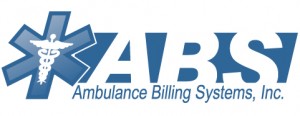Crack the Code
Crack the Code
Last week ABS Inc. covered the issue of fee schedules and the initial base rate set up for your business, the impact and pitfalls faced by setting it up incorrectly. This week we are covering coding errors.
Insurance companies and Medicare reimburse transportation by ambulance once it has been confirmed the transport was “medically necessary”, based on the condition of the patient when transport was provided and to this end a coding system was been introduced to aid the billing process. Medicare requires claims to be submitted with at least one diagnosis code (ICD Code) as outlined in the International Classification of Disease manual. Since the development of the ICD codes used as the final diagnoses, the use of them in ambulance transport coding is complex at its best, and at its worst, an opportunity for fraudulent claims by departments, knowingly or unknowingly.
Billing staff members require adequate training to be able to interpret run sheets and the correct codes. It can be all too easy to innocently select the incorrect code identifying the patient condition, a code that implies the condition was worse than it was. It is equally possible that billing staff can select a code that is too vague, more often than not just three digits entered for transport justification.
Such coding errors can lead to fines and even the forfeiture of reimbursements. Coding errors are the main reason most fraud investigations take place, and they are avoidable errors! It is also common for insurance auditors and is Medicare practice to review claims to identify possible exaggerations or trends. If they identify something that appears to be questionable, they will follow up and investigate further.
Training individuals sufficiently is both time consuming and expensive and the person providing the education needs to be fully conversant with what they are teaching. This is where companies such as ABS Inc. offer a valuable role in:-
- Saving you time and money in training costs.
- Ensuring your base rate is set up correctly.
- Ensuring the correct codes presented on all claims are correct.
- Maximizing your reimbursements.
- Avoiding potential fraud investigations.
Contact ABS Inc. to discuss your needs and find out just how we get offer you the best solution to your EMS billing.

